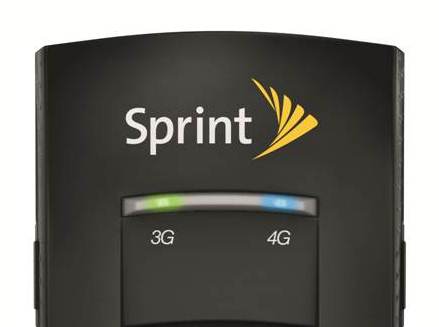Telecom & Wireless
Analyst Says Sprint Trading Way Under Arbitrage Buyout Price (S, VZ, T, AAPL, PCS, CLWR, DISH)
Published:
Last Updated:
The ongoing merger (or majority stake) saga at Sprint Nextel Corp. (NYSE: S) may finally be coming to a close. The analysts at Argus feel confident that the Softbank/Sprint merger has a reasonably good chance for approval. In a research report released today, they point out that investors should take note of the 26% arbitrage difference between the current Sprint stock price and the $7.30 Softbank offer.
The long running turnaround at Sprint has lasted more than three years. While the company has made good progress in luring the lower margin prepaid business, attracting the higher margin postpaid subscribers, a business dominated by Verizon Communications Inc. (NYSE: VZ) and AT&T Inc. (NYSE: T), has been difficult. While prepaid is lower-margin than postpaid, it is one of the strongest parts of Sprint’s business. The research team at Argus sees increased competition in this segment due to refocused offers from the market leaders, Verizon and AT&T, as well as from smaller players like MetroPCS Communications Inc. (NYSE: PCS). In addition, Sprint has been able to launch 4G LTE service in more than 50 cities, though its rollout is still dwarfed by the larger carriers.
Sprint finally got to offer its customers the iPhone in October 2011. Selling the popular smartphone cuts both ways, as handset subsidies paid to Apple Inc. (NASDAQ: AAPL) have hurt margins. According to the Argus research report, Sprint sold 1.6 million iPhones in the fourth quarter, which helped fuel its top line, but also has had an impact on margins.The company said that 38% of its iPhone activations in the quarter were for customers new to Sprint. However, it is unclear exactly where the customers are coming from since AT&T sold 8.6 million iPhones in the quarter and Verizon sold 6.2 million. The likely suspects would be T-Mobile, which does not have the iPhone, and customers moving up from prepaid. We note that nearly 40% of Sprint’s iPhone-related additions in the fourth quarter were new to the company, well above the rates for Verizon and AT&T.
Softbank, which is a Japanese telecom and Internet company, agreed to take control of Sprint Nextel, which is the third-largest U.S. telecom, last October. Under the terms of the deal, SoftBank will invest $20.1 billion in Sprint in exchange for 70% of Sprint’s equity. Some $12.1 billion will be distributed to Sprint shareholders for 55% of the company’s equity, and the remaining $8 billion will be used to strengthen Sprint’s balance sheet. At closing, Sprint shareholders will have the right to receive $7.30 per share in cash or one share of the recapitalized “new Sprint.”
One of the additional attractive assets that Softbank covets in the deal is Sprints majority ownership of wireless broadband provider Clearwire Corp. (NASDAQ: CLWR). With 1.4 million retail subscribers and 9.1 million wholesale subscribers, Clearwire has accepted Sprint’s offer to acquire the remaining 49% of the company that it does not already own. However, a competing bid by Dish Network Corp. (NASDAQ: DISH) altered the landscape in January. Although a bidding war could commence, Argus believes that Sprint still holds the upper hand with its majority holdings.
Due to the strong metrics and despite the inevitable competition, Argus is maintaining a Buy rating on Sprint, and it has a $7.50 price target. The Wall St. consensus estimate is $6.30 and the stock is around $5.80 now. The analysts concede that many questions remain in regards to the merger. But with a possible upside in excess of 25%, investors may have an opportunity to take advantage of Wall St.’s doubts that the deal actually is closed.
Thank you for reading! Have some feedback for us?
Contact the 24/7 Wall St. editorial team.